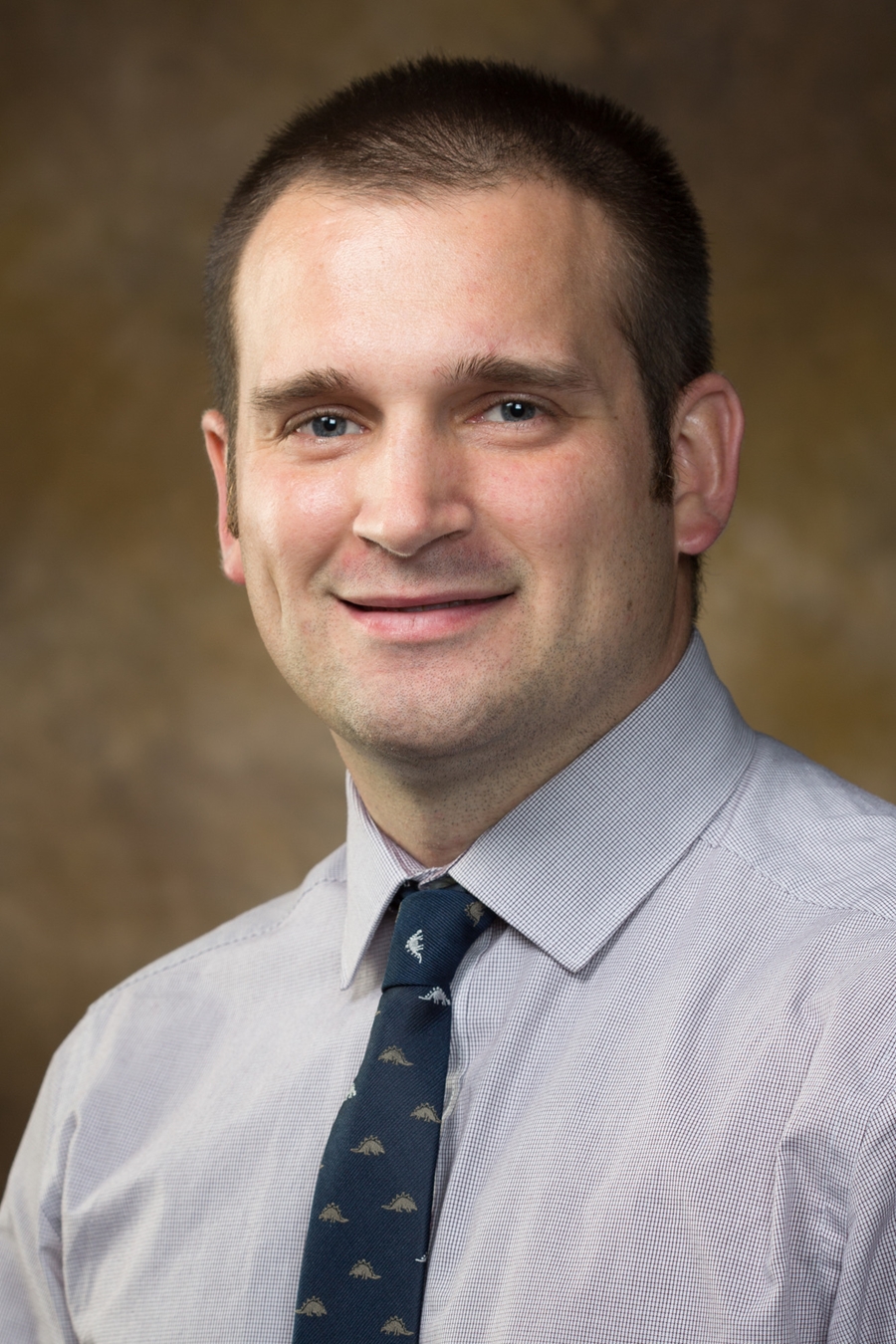New Method of Studying Sediment Could Predict Climate Change Impact
FAYETTEVILLE, Ark. – Sedimentary deposits tell a story about how the Earth responded to a changing climate in the past and are an important tool for predicting what climate change will mean for the future. A new study by a University of Arkansas researcher focuses on the origins of sediment, an approach that could make interpreting the deposits easier and more accurate.
Scientists often rely on the concept of sediment supply, which is the quantity of sediment deposited in an area over time, to reconstruct processes such as climate, erosion and tectonic upheaval responsible for the deposits. But the idea can be difficult to apply in real-world scenarios because those same forces alter the sediment supply in many ways, scrambling the story scientists are attempting to decipher. Glenn Sharman, assistant professor in the University of Arkansas Department of Geosciences, is the first author of a new study suggesting that determining where the sediment originated, its “provenance,” makes its origin story easier to decode.
“In real world situations, it can be hard to constrain the quantity of sediment in a systematic way,” said Sharman, who wrote the paper with colleagues from the University of Texas. “The origin of the sediment is another parameter that can be applied to real world examples.”
Sharman and his colleagues started with the idea that research on the sedimentary record was focused on certain parameters, such as sediment supply, that are difficult to quantify because of the variables involved. For their experiment, they created a model comparing sediment origin with supply to determine how each was affected by changes in tectonic uplift and precipitation.
They found that sediment supply and provenance reacted differently to the changes, and that by considering both factors researchers might be able to get a more accurate picture of the forces shaping the landscape. Their results were published in Nature Scientific Reports.
“The Earth has had a changing climate in the past, we know that,” Sharman said. “We know it is changing now. If you understand how it has responded in the past it might give you some indication of how it will change in the future.”
About the University of Arkansas: The University of Arkansas provides an internationally competitive education for undergraduate and graduate students in more than 200 academic programs. The university contributes new knowledge, economic development, basic and applied research, and creative activity while also providing service to academic and professional disciplines. The Carnegie Foundation classifies the University of Arkansas among fewer than 2.7 percent of universities in America that have the highest level of research activity. U.S. News & World Report ranks the University of Arkansas among its top American public research universities. Founded in 1871, the University of Arkansas comprises 10 colleges and schools and maintains a low student-to-faculty ratio that promotes personal attention and close mentoring.
Contacts
Glenn Sharman, Assistant Professor, Geosciences
J. William Fulbright College of Arts & Sciences
302-745-1412,
gsharman@uark.edu
Bob Whitby, feature writer
University Relations
479-575-4737,
whitby@uark.edu
Headlines
PetSmart CEO J.K. Symancyk to Speak at Walton College Commencement
J.K. Symancyk is an alumnus of the Sam M. Walton College of Business and serves on the Dean’s Executive Advisory Board.
Faulkner Center, Arkansas PBS Partner to Screen Documentary 'Gospel'
The Faulkner Performing Arts Center will host a screening of Gospel, a documentary exploring the origin of Black spirituality through sermon and song, in partnership with Arkansas PBS at 7:30 p.m. Thursday, May 2.
UAPD Officers Mills and Edwards Honored With New Roles
Veterans of the U of A Police Department, Matt Mills has been promoted to assistant chief, and Crandall Edwards has been promoted to administrative captain.
Community Design Center's Greenway Urbanism Project Wins LIV Hospitality Design Award
"Greenway Urbanism" is one of six urban strategies proposed under the Framework Plan for Cherokee Village, a project that received funding through an Our Town grant from the National Endowment for the Arts.
Spring Bike Drive Refurbishes Old Bikes for New Students
All donated bikes will be given to Pedal It Forward, a local nonprofit that will refurbish your bike and return it to the U of A campus to be gifted to a student in need. Hundreds of students have already benefited.





